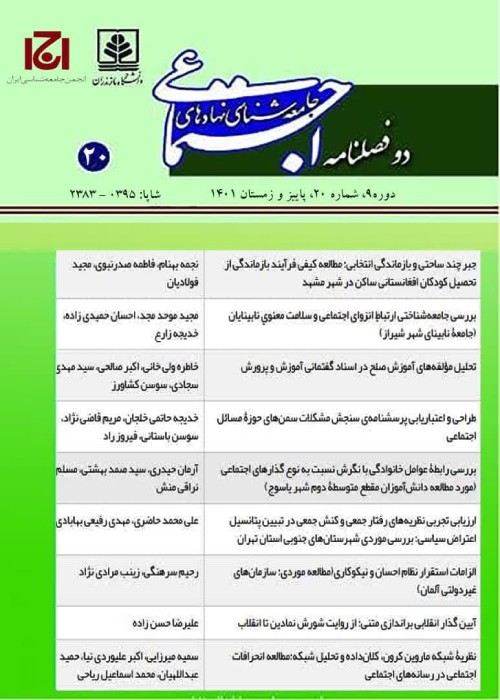A Sociological Analysis of the Social Barriers to the Acceptance of Advanced Technologies in the Agriculture-Rural Sector of Iran (Case Study: Bio-Fertilizers Technology)
The aim of the current research is to investigate the social causes of the weakness in the adoption of biofertilizer technology, despite the passage of three decades since Iranian technologists achieved their industrial production.
The present study followed a qualitative research approach and used the case study strategy. The data collection was carried out through document study, unstructured interviews, and participatory observation, and the studied unit was the socio-technical fertilizer system. Data was collected from policy-making departments, public and private companies, and universities and was analyzed using the explanatory construction method.
During the three decades under study, policy nests in the field of laws and institution building by the government and technology nests in technology promotion and market development have been created by biofertilizer producers. Also, in the shadow of global developments such as the embargo, war, increased fertilizer prices, and demand for healthy products, the domestic perspective is also under pressure, but it has not led to a significant increase in the acceptance of biological fertilizer.
In addition to the characteristics of authoritarianism and rigidity towards the change of procedures in the executive body, the custodian of fertilizer supply and distribution in the country as a network of politically connected companies by using mechanisms of regulatory capture, hiding and denying the effectiveness of technology, limiting the access of competitors, and discrimination in law enforcement, has not allowed the formation of windows of opportunity in the socio-technical system of fertilizer. Also, the entanglement of the prospect of self-sufficiency in agricultural products with the provision of chemical fertilizer subsidies in the form of imports has made it impossible to form a new configuration in the technical-social fertilizer system. At the same time, the custodian body considered the barriers to the release of biofertilizers as their high price, lack of effectiveness in performance, and lack of acceptance of bio-fertilizers as small ownership, old age, and low education of the Iranian agricultural community; an issue that was not true in the field of practice.
- حق عضویت دریافتی صرف حمایت از نشریات عضو و نگهداری، تکمیل و توسعه مگیران میشود.
- پرداخت حق اشتراک و دانلود مقالات اجازه بازنشر آن در سایر رسانههای چاپی و دیجیتال را به کاربر نمیدهد.




